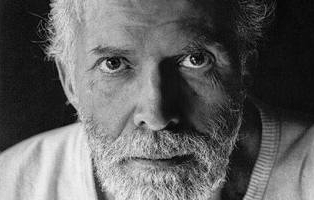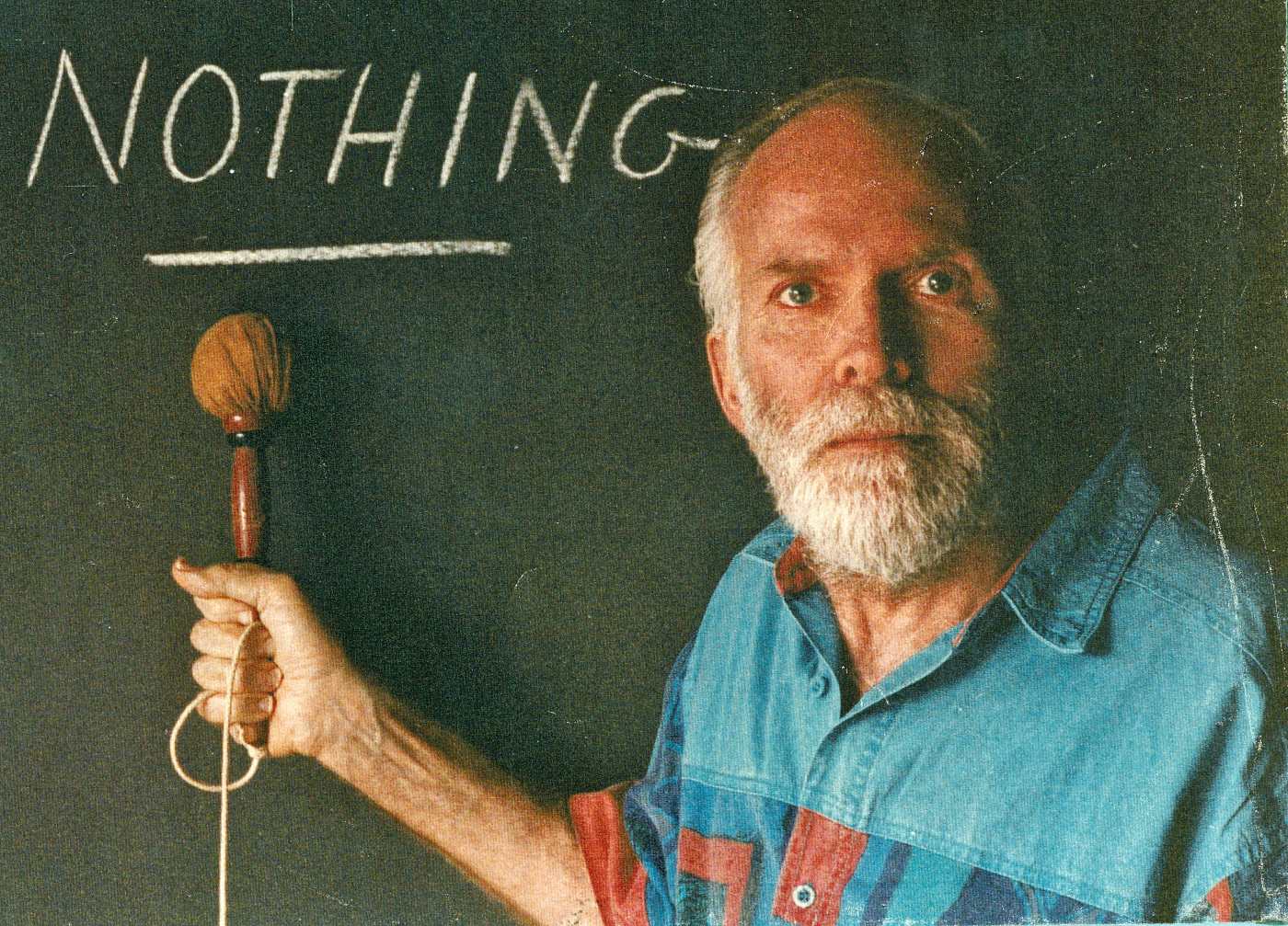To the human mind it is easier to pay homage to (or await the return of) a dead mystic than pay heed to one who may actually walk amongst us. This is the first in what will be an occasional series on more contemporary mystics. We start with my favorite, a collection of talks given by the late Robert Adams during his California satsangs of the 1990s.
Robert Adams did not ask to give talks, felt no compulsion to be a teacher, but in the curious way that students find their teacher so too did a flock of spiritual seekers track down this humble man in his small garden apartment and encourage him to talk.
What Adams introduced them to was nonduality (advaita), the great engine of Truth that powers virtually all spiritual and mystical traditions and today lies buried beneath great mounds of mind-made religious rubbish.
 Nonduality itself is not a religion, movement or philosophy – such systems are, in fact, antithetical to it. There is no orthodoxy, no rules of engagement, no teachers or gurus. Nonduality asks but one thing of its followers: To relentlessly, tirelessly, passionately seek within and locate the self upon which the entire edifice of existence appears to be built.
Nonduality itself is not a religion, movement or philosophy – such systems are, in fact, antithetical to it. There is no orthodoxy, no rules of engagement, no teachers or gurus. Nonduality asks but one thing of its followers: To relentlessly, tirelessly, passionately seek within and locate the self upon which the entire edifice of existence appears to be built.
Adams knew nothing of nonduality until he was obliterated in a profound awakening experience at the age of 14, compelling him to find an answer to what had happened to him. Eventually he found himself in India with Ramana Maharshi, who many consider the greatest mystic since Jesus. (To give you an idea of the simplicity to the nonduality message, Ramana’s own ‘book’ is composed of perhaps a half-dozen pages.)
Adams eschewed talking about his own awakening experience because he knew that desperate, eager minds would turn ‘enlightenment’ into yet another mental concept toward which they could aspire. But enlightenment is not something that someone can get or work toward. It isn’t an accomplishment or achievement precisely because by its very nature enlightenment obliterates the self. Or as Rupert Spira so eloquently puts it, “It is awareness tasting itself.”
But in one talk Adams shared something of the experience, which took place in a classroom as he was about to take a test. What has always been of particular interest to me are the myriad ways that the awakening experiences so closely mirrors tales of near-death experiences (also life-changing events). As Adams describes it:
“All of a sudden I felt myself expanding. I never left my body, which proves that the body never existed to begin with. I felt the body expanding and a brilliant light began to come out of my heart. I happened to see the light in all directions. I had peripheral vision, and this light was really my Self. It was not my body and the light. There were not two. There was this light that became brighter and brighter and brighter, the light of a thousand suns. I thought I would be burnt to a crisp.
“This brilliant light, of which I was the center and also the circumference, expanded throughout the universe and I was able to feel the planets, the stars, the galaxies, as myself. And this light shone so brightly, yet it was beautiful, it was bliss, it was ineffable, indescribable.
“After awhile the light began to fade away, and there was no darkness. There was just a place between light and darkness, the place beyond the light. You can call it the void, but it wasn’t just a void. It was this Pure Awareness I always talk about. I was aware that I Am That I Am. I was aware of the whole universe at the same time. There was no time, no space, there was just the I Am. The word “I” encompassed the whole universe.”
So what of us sufferers who, unlike Ramana or Adams, aren’t graced with a spontaneous awakening? How the hell does a mistaken entity see through its own mistakenness?
The answer, said Adams, is to inquire within. In talk after talk he gently urged his followers to look at the mental gymnastics driving them crazy and ask, “To whom do these thoughts come?” As we inquire, he said, the gaps between the thoughts increase, allowing the true Self to shine through. Eventually, as we discover that there is nobody home, that this person we imagine ourselves to be is a mind-made fiction, the illusion crumbles and there is only the sublime Oneness of Being.
Adams took great pains to reassure his students that there was absolutely nothing wrong anywhere, ever, and to resist the mind’s temptation to fix, heal, or otherwise improve themselves or the world around them. Many of you, he said, believe that by making yourself more loving or compassionate or by fixing the world that you are doing good by yourself and others.
But in a dualistic realm, every action has a reaction and for a time everything will appear to be doing better and then things will worsen again. The great bookends to any life say it all: birth/death, repeat as necessary. No matter how hard you work at this life, if you persist in your belief in a separate self then that self – you – will die in the end. This is maya, the great illusion, suffering itself, and it produces the karma we are continually working to overcome. It is akin to digging one hole by filling in the previous one, on and on, lifetime after lifetime.
The mind, of course, cannot abide such ‘nonsense’ and dismisses such messages as the claptrap of saffron-robed yogis. It is far easier to put one’s ‘faith’ in the masters of the past. But it is interesting to note that the likes of Jesus, the Buddha, et al, all echoed the same message. “The kingdom lies within,” said Jesus. “Seek until you find, and when you find you will be disturbed.” Why? Well, to discover that one’s entire existence was a fiction can be tough stuff – for the mind.
In a thoughtful series of letters with a young Czech man curious as to why life was so often difficult, Adams explained that human existence could be looked at as a kind of never-ending merry-go-round, where the mistaken self (the ‘soul,’ if you will) reincarnates again and again and again in an endless attempt to shed the ‘karma’ from previous existences. But because that imagined self keeps incarnating into a dualistic universe, it stands no chance of thinking or behaving its way out. It continually creates new karma. The mind says, if I conquer the Visigoths or feed the children or stash a million bucks in the bank, life will be made better. But the Saxons take the place of the hated Visigoths, all those fed children become healthy, hardy adults and breed even more mouths to feed, and the more money we earn the more obsessed (lost) we become in protecting it.
“Don’t think that if some day the world will be a better place in which to live, you’ll be happy,” Adams said. “It will never happen. Since the beginning of time man has tried to improve this world, to no avail. You try to make yourself a better human being or a more competent person. This just makes you more worldly.”
To Adams and his ilk the question is, “Why wait?” Why suffer through countless lives playing the same game again and again – worrying, fearing, planning, making war or peace, when even a modest amount of circumspection would reveal the silliness of the whole thing, the rise and fall of empires, the birth and death of the universe itself.
“Look at the world. The world is a cosmic joke. It appears to be real. The good things, the beautiful things, the horrible things. They are all impostors. The world is a world of duality – for every up there is a down. Get out of it by transcending the mind and body. Stop feeling sorry for yourself. Stop paying so much attention to your thoughts, to the world, to your body. Let come what may. Surrender totally to your Self. Your Self is God, Consciousness. Begin to identify with the I Am, not with conditions. Feel in your heart the Oneness of Eternity.”




Duality is dynamic.
Oneness is static.
Duality is ‘ Life ‘
Oneness is ‘cosmic’ retirement, the finality, the death from which there is no return; ultimate oblivion and ” Peace ”.
You enter ‘the void’ and there is still a duality, still a knowing of other, you and the void, no past no future just the present moment; perhaps if you can disassociate in the void and become the void, Oneness is achieved ? No more ‘ You ‘.
Remember, all gurus, writers and talkers are still only human. I think Bwian’s mother told it correctly, ” He’s not the Messiah, he’s just a very naughty boy ”.